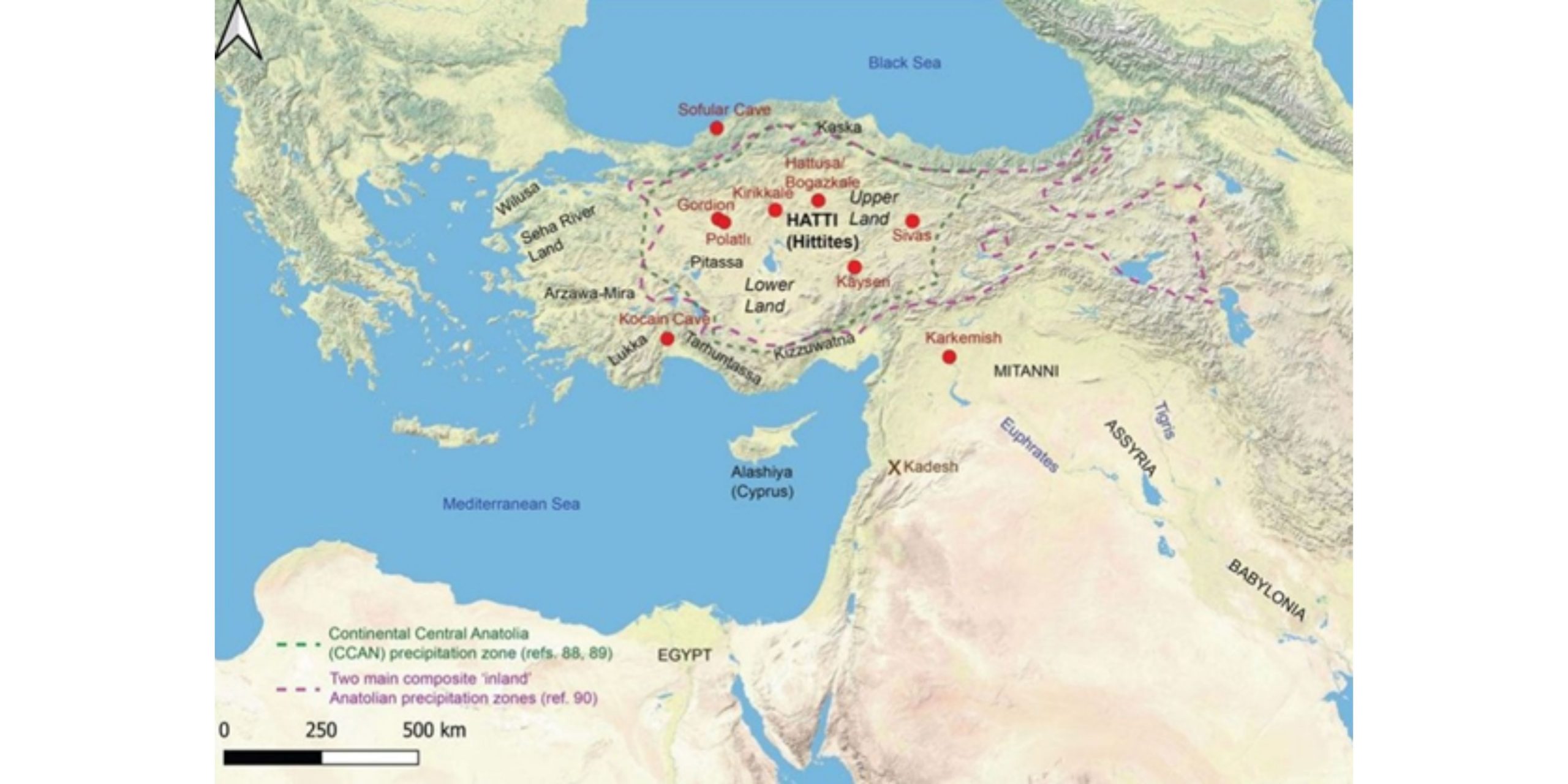A recent study of 3,200-year-old trees in Turkey suggests that the mysterious collapse of several important empires in the Middle East and Eastern Mediterranean region – amongst them the powerful Hittite Empire – in the Late Bronze Age, from around 1200 to 1150 BC, coincided with a severe multi-year drought in central Anatolia.
Prof. Sturt Manning, Distinguished Professor of Arts and Sciences in Classics at Cornell University, Director of the Cornell Tree-Ring Laboratory, and Adjunct Professor at The Cyprus Institute, leads this major study, published in the prestigious journal ‘Nature’.
The study shows that an examination of long-lived juniper trees that grew in the region at the time reveals that consecutive multi-year occurrences of rare, unexpected extreme climatic events, such as severe drought, may have caused crop failures, famine and political-societal disintegration, which eventually led to the collapse of the Hittite Empire.
The Hittites were one of the great powers in the ancient world across five centuries, with an empire centred in a semi-arid region in Anatolia with political and socioeconomic interconnections throughout the ancient Near East and Eastern Mediterranean, which for a long time proved resilient despite facing regular and intersecting socio-political, economic and environmental challenges.
Examination of ring width and stable isotope records obtained from contemporary juniper trees in central Anatolia provides a high-resolution dryness record. This analysis identifies an unusually severe continuous dry period from around 1198 to 1196 (±3) BC, potentially indicating a tipping point, and signals the type of episode that can overwhelm contemporary risk-buffering practices.
The full article can be accessed here.
Source: The Cyprus Institute I News (https://bit.ly/3Yoe48u)
